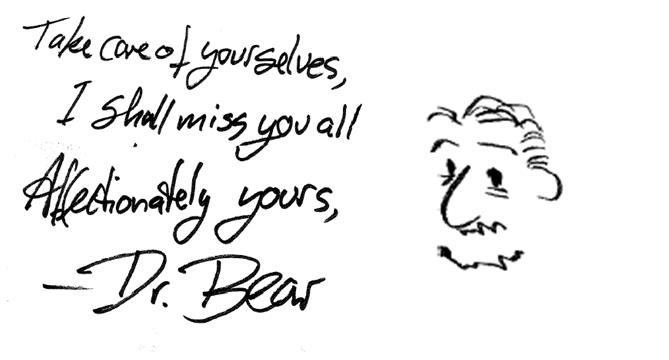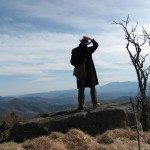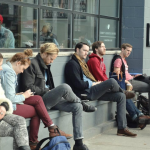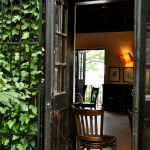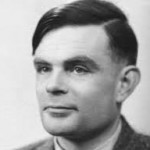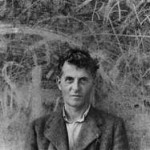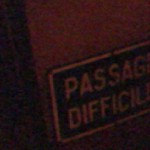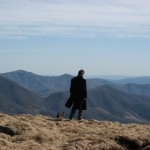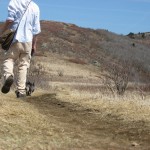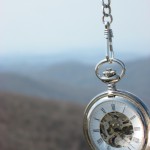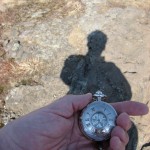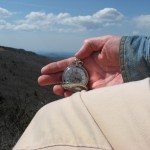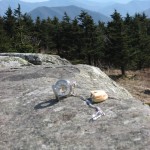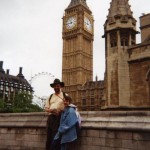 My darling “hobohemian” daughter—
My darling “hobohemian” daughter—
You once asked me why I feel less lost wandering, and more at rest when I was moving. Since we are about to embark on a long journey—perhaps even the beginning of several changes, shifts and moves—I decided this would be a good time to try to figure out why.
The first reason, of course, is the search for wonder.
When I was young, I really disliked going to bed; the world was so full of wonder and excitement that I was afraid that I would miss something. Maybe it was just because my parents were (and still are) exciting, brilliant people, maybe it was because they instilled and cultivated a sense of wonder in us, but every moment seemed to be a potentially enthralling adventure. When my brother James’ breathing slowed to a regular rhythm, I would sneak out and sit as close as I could to the living room, listening. You may recall that I am still generally the last one to bed and the first one up; I still don’t want to miss anything.
last one to bed and the first one up; I still don’t want to miss anything.
I feel that way about the big wonderful world, too. There is just so much there—thousands and thousands of wonders to be observed, to be felt and smelled and tasted, to be experienced, to be made into stories. There are giant mountains and castles and oceans, and tiny flowers growing out of sidewalks and boulders, food in bright curried and wine rich colors, new songs and noises to be heard, and a mysterious, fantastical cast of human beings, each with their own little charms.
I like to think that I am a connoisseur of wonder, but I might just be a hopeless junkie. I am hopelessly addicted to new experiences, and I get shaky and cranky when I have to go without wonder.
It is almost like going without the sight of a smile.
Secondly, it keeps the forces of my lost-ness and entropy at bay.
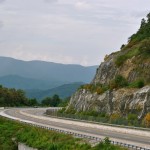 Entropy, my dear, is not a fierce storm or a wild maelstrom; it is a slow decay into a constant state of stasis and stability. A static homogeneity fills me with dread. Creation, on the other hand, is chaos. Movement is a force against entropy, a refusal to the inevitable decay, a brilliant—though erratic and dangerous—foray against the dullness of aging and decline; it is a choice to force oneself to live each moment fully. Not all who are lost wander, but we lost wanderers find so much that we can always be guests to each new day.
Entropy, my dear, is not a fierce storm or a wild maelstrom; it is a slow decay into a constant state of stasis and stability. A static homogeneity fills me with dread. Creation, on the other hand, is chaos. Movement is a force against entropy, a refusal to the inevitable decay, a brilliant—though erratic and dangerous—foray against the dullness of aging and decline; it is a choice to force oneself to live each moment fully. Not all who are lost wander, but we lost wanderers find so much that we can always be guests to each new day.
Finally, there are few things in this world—in fact, you might be the only thing—that I value more than freedom.In general, freedom is at the core of what it means to be human;  we have survived and persevered because we are not dependent upon the intuition of instinct, but can choose and adapt ourselves. This ability to transcend where we were born and what we are born with has allowed us to flourish from the icy Yukon to the burning Kalahari.
we have survived and persevered because we are not dependent upon the intuition of instinct, but can choose and adapt ourselves. This ability to transcend where we were born and what we are born with has allowed us to flourish from the icy Yukon to the burning Kalahari.
Freedom allows us to become who we chose to become. We are thrown into this world without a fixed essence, a pre-set purpose, and we create and constantly recreate our selves. We even have the privilege of creating meaning, of finding meaning, in this indifferent but wonderful world.Herder and Sartre aside (yes, those are their ideas), you know that I fear a cage or a prison—even an enclosed space—more than anything else—it is one of the things you and I have in common. To be happy, I must be free; I must have choices. To be trapped,  even in a benevolent trap, is to fall into neurotic decay and slowly wither inside. Even through the physical pain—and it was powerful and terrifying—of my lost arm and kidney failures, what I feared most was losing my freedom.
even in a benevolent trap, is to fall into neurotic decay and slowly wither inside. Even through the physical pain—and it was powerful and terrifying—of my lost arm and kidney failures, what I feared most was losing my freedom.
To be on the open road is to fly, unencumbered, and to feel the glorious stretching of muscle and sinew against the weight of inertia and gravity.

“Allons! the road is before us!” Wonder, creation, and freedom await us. That is why I travel.
Oh, also because the food is great.
Your travel companion and Papa—
PS: Speaking of wandering, I will be out of the Bistro for the next 4 weeks. I leave it in Brandon & Peirce’s capable hands. I might post, but I might just be in the moment. I am more likely to post pictures to my tumblr account, since that is what it does best. I certainly will not post recipes, since I will be away from my laboratory, but I will be gathering ideas in Germany, Switzerland, France, Ireland, Scotland, and England.
I will miss you all.